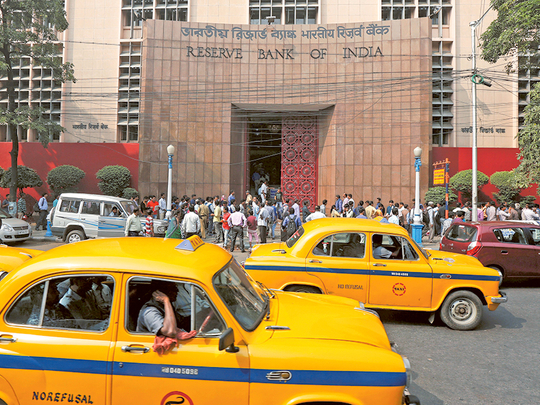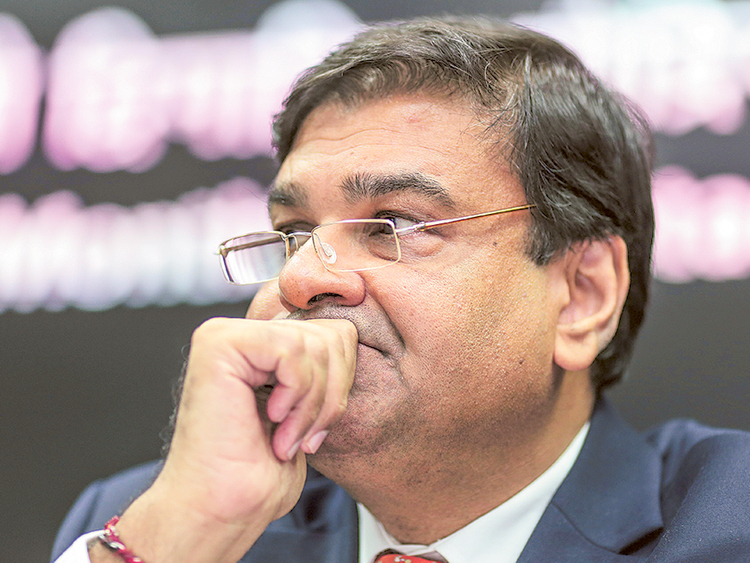
New Delhi, Mumbai: As India undergoes the world’s biggest currency overhaul in decades, one official is noticeably absent: central bank Governor Urjit Patel.
The head of the monetary authority has spoken just once since the government invalidated 86 per cent of currency in circulation in a surprise move on November 8. Mounting cash shortages pushed the Supreme Court to warn of riots, and a powerful bank union called for Patel’s resignation after a senior bureaucrat was tasked with firefighting.
“Generally, measures of this sort are carefully planned well in advance, and the public is given plenty of time in advance to adjust,” Robert Hockett, who teaches monetary law at Cornell University and advises the New York Federal Reserve, said by email. “It is generally to be expected, and is typically the case, that the actual issuer of the currency, the central bank, plays the leading, if not the sole, role in these matters.”
While Patel’s low profile was initially seen as a foil for Prime Minister Narendra Modi’s high-visibility administration, it risks backfiring as public anger increases. Credibility and autonomy of the Reserve Bank of India is linked to the value investors assign the rupee, which on Thursday sank to a record low.
Bold move
Earlier this month, Modi banned Rs500 and Rs1,000 bank notes in a move he said was essential to root out tax evasion and graft. Patel briefed the press soon after, assuring that enough supplies of fresh bank bills would be shared across the country and life would be back to normal by the end of 2016.
Business leaders such as Ratan Tata, interim chairman of India’s largest conglomerate, called on peers to support the “bold” move. However, on the streets, authorities were criticised for poor execution. In a nation where 98 per cent of all consumer payments are made in cash, half of the 200,000 cash machines have yet to be refitted to handle the new bank notes. It could take until May to replace all the bills rendered worthless, according to some estimates.
Other experts have been questioning the wisdom in backing Modi’s decision to ban the notes. K.C. Chakrabarty, who’s held both commercial banking and public policy roles, said he doesn’t know how much the Reserve Bank of India was “on board” with Modi’s move.
‘Benefit of doubt’
It was Patel’s 10-member board that came up with the idea to ban the notes, Power Minister Piyush Goyal told lawmakers on November 16.
The RBI’s spokeswoman didn’t reply to an email seeking comment on the central bank’s involvement in the currency overhaul and Patel’s absence. The RBI has been issuing periodic statements assuring on the supply of cash.
“I was in charge of currency management and I saw that it doesn’t serve the purpose,” Chakrabarty, who was deputy governor at the RBI from 2009 to 2014, said by phone from London. “All I can say is the present governor is a very sensible person and he is very new. So I’ll give him the benefit of doubt.”
Modi dominates
When high-value notes were last scrapped in 1978, then Governor I.G. Patel — no relation to the current chief — attacked the move. When Patel’s predecessor Raghuram Rajan was asked in 2014 for his views on demonetisation, he said he’d rather have tax reform.
Patel was hand-picked by Modi to lead the central bank, after ties with the government deteriorated under the outspoken Rajan. Even before Modi’s unexpected currency announcement, Patel was reluctant to step into the spotlight. As one of Rajan’s four deputies the past three years, Patel had spoken at just one public event, compared with about two dozen by his predecessor.
One also must allow for the heft of Modi’s personality. After winning a presidential style election with India’s biggest mandate in three decades, Modi is the dominant — some say sole — force within the ruling Bharatiya Janata Party. Between November 8 and November 22, he’s spoken on national TV at least six times on the currency decision, swinging between teary-eyed appeals to the common man and angry attacks against the political opposition, which has been relentless in criticising his move.
“This is purely a political decision for political reasons, not for a sound economic reason,” said Mohan Guruswamy, a former Indian finance ministry official and chairman at the Centre for Policy Alternatives in New Delhi.
Economic impact
Perhaps the most important question is whether Patel will come under pressure if the government seeks to profit from the cash ban. Modi’s move could expose as much as 5 trillion rupees of unaccounted cash, the government estimates, and former central bank Governor Duvvuri Subbarao warned that it would be “highly ill-advised” to transfer this as a windfall to the government.
The government’s decision to ban high-value notes will be positive for economic growth in the medium- and long-term, said Economic Affairs Secretary Shaktikanta Das. It’s irrelevant who communicates as long as all information is shared, he told reporters on Wednesday. Das — who’s also on the RBI board — is in charge of overseeing the currency overhaul, and has been tweaking related rules almost every day since Modi announced the decision.
There’s also been unintended beneficiaries: India’s cash-strapped power companies. Electricity consumers who hadn’t paid their bills for months have been queuing up to square their accounts with the old notes.
For a story on the bonanza for money-losing power retailers, click here
Meanwhile Credit Suisse Group SA and Deutsche Bank AG have cut their estimates for near-term growth. The slump in economic activity will slow expansion by about 1 percentage point in the year through March 2017, they forecast.
“It is a cabinet decision but, not for the first time, the government machinery is found lacking good communication skills to explain its policies, promptly, clearly and nationally,” said Manish Singh, chief investment officer at London-based Crossbridge Capital LLP. “When such a big event like this is happening, one would definitely like to see and hear more from the central bank governor than we have so far.”
Demonetisation has hit common man, will drag GDP by 2%: Manmohan Singh
New Delhi: Pointing out the extent of hardship which demonetisation has caused the common man and small businesses, and the likely hit of 2 per cent on GDP, former Prime Minister Manmohan Singh on Thursday said this has been coupled with “monumental” mismanagement in implementation.
“I want to ask the Prime Minister [Narendra Modi] if he can name any country where people have deposited their money but are not able to withdraw it,” Manmohan Singh queried during a statement in the upper house of parliament.
“There has been a monumental mismanagement in implementation of demonetisation. I hope that the prime minister will help us find practical ways to give relief to people who are suffering,” he said, adding 60-65 people have also lost their lives.
“The GDP of the country will decline by about 2 per cent by what has been done. And this is an underestimate and not an overestimate,” he said. “What has been done can also weaken our people’s confidence in the currency and banking system.”
He said the areas and sectors that have suffered the most are small businesses, farming and cooperative banking, and made an ardent appeal to the government to take note of the grievances of the people.
“Those say demonetisation is good in long run should recall the quote: ‘In the long run we are all dead’.”
-IANS













